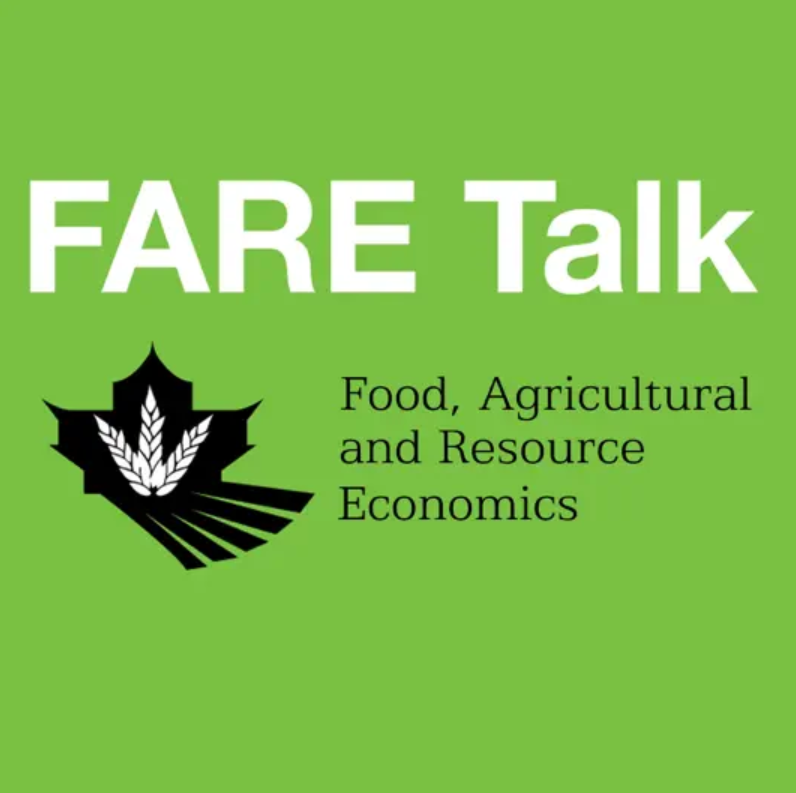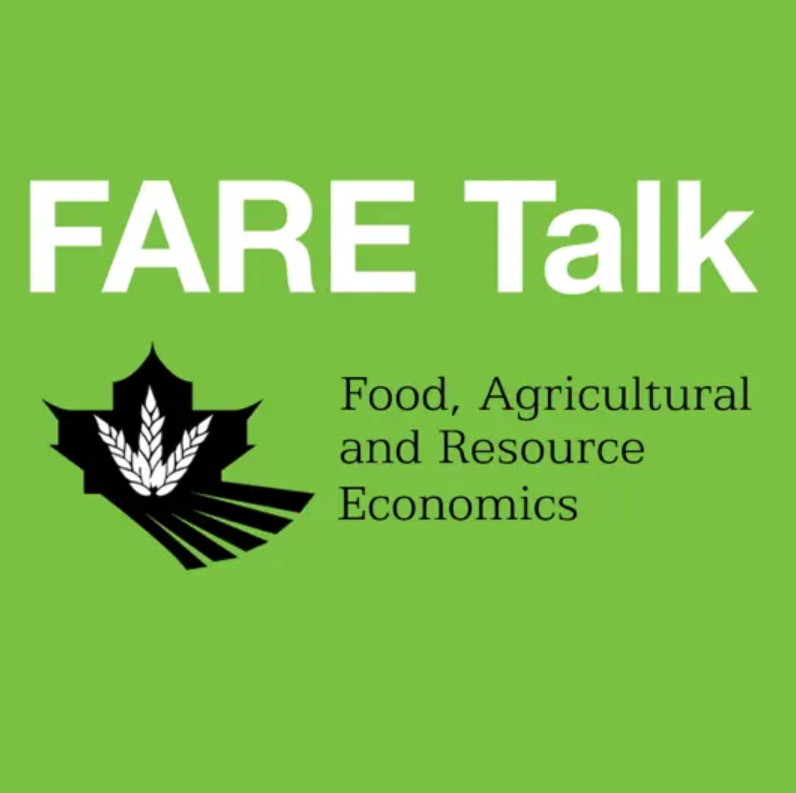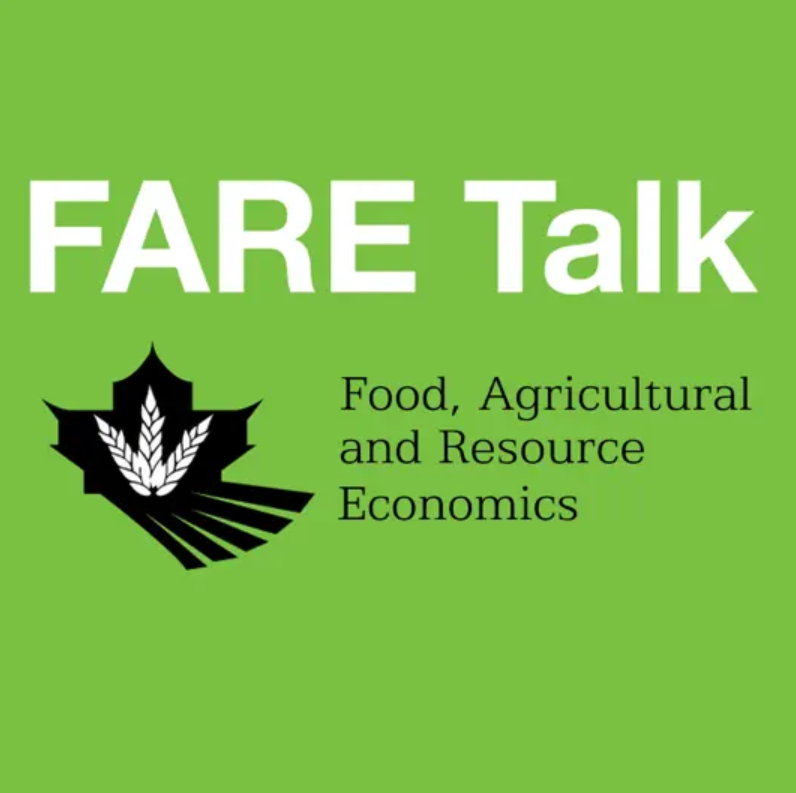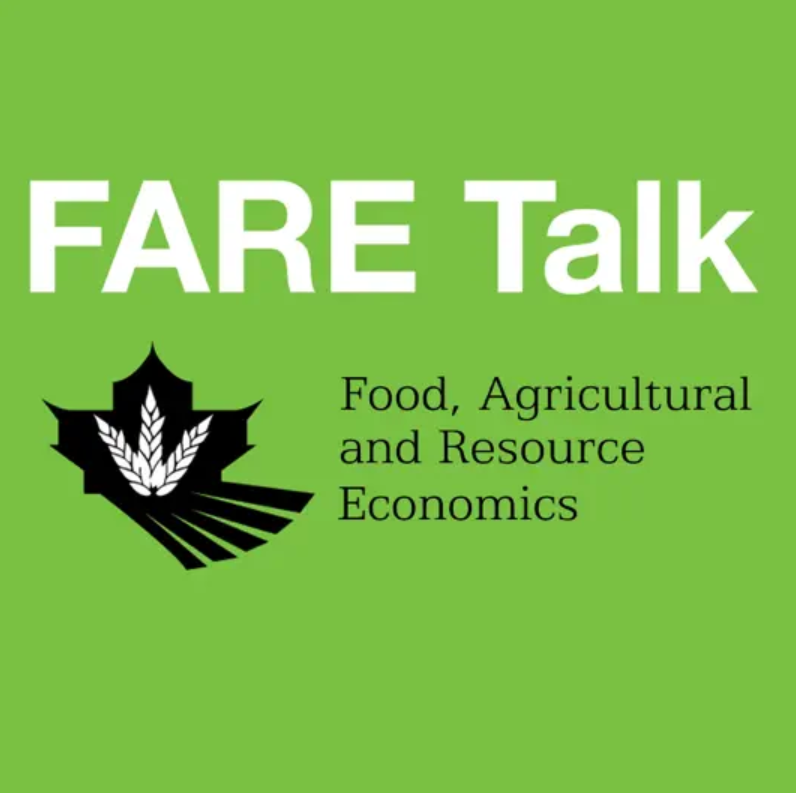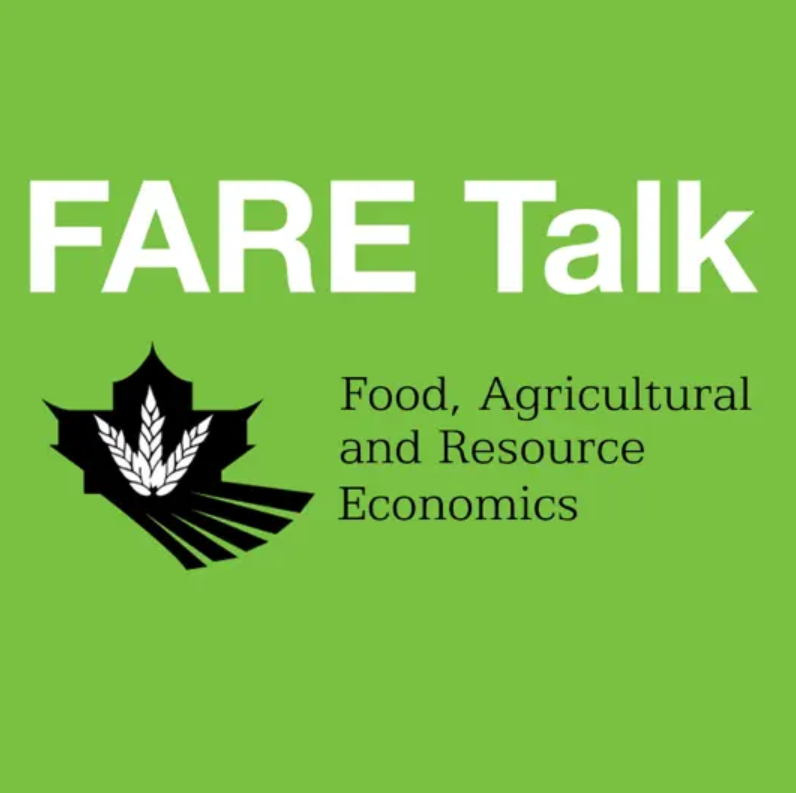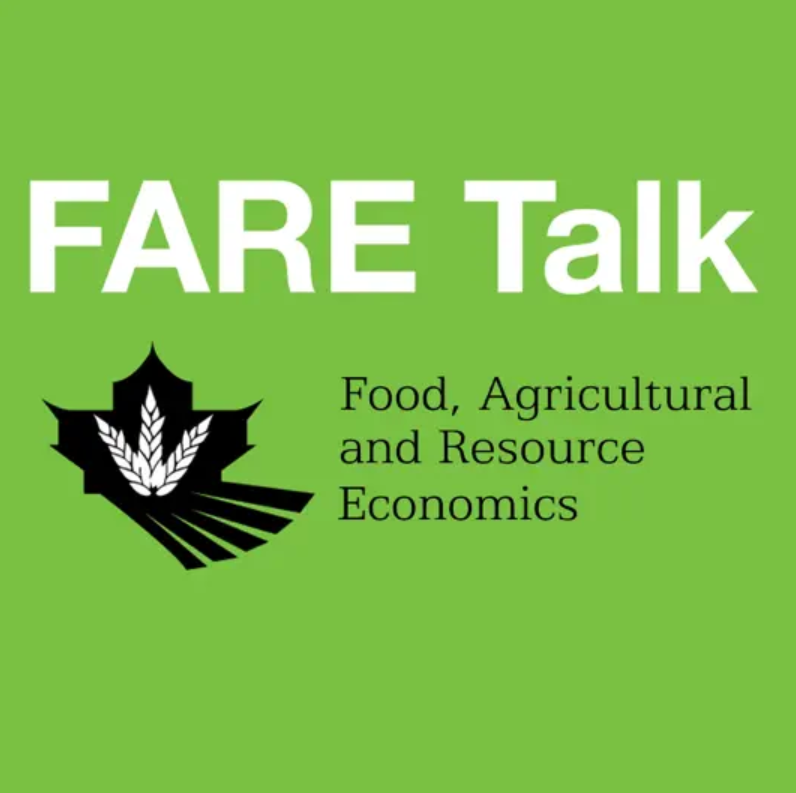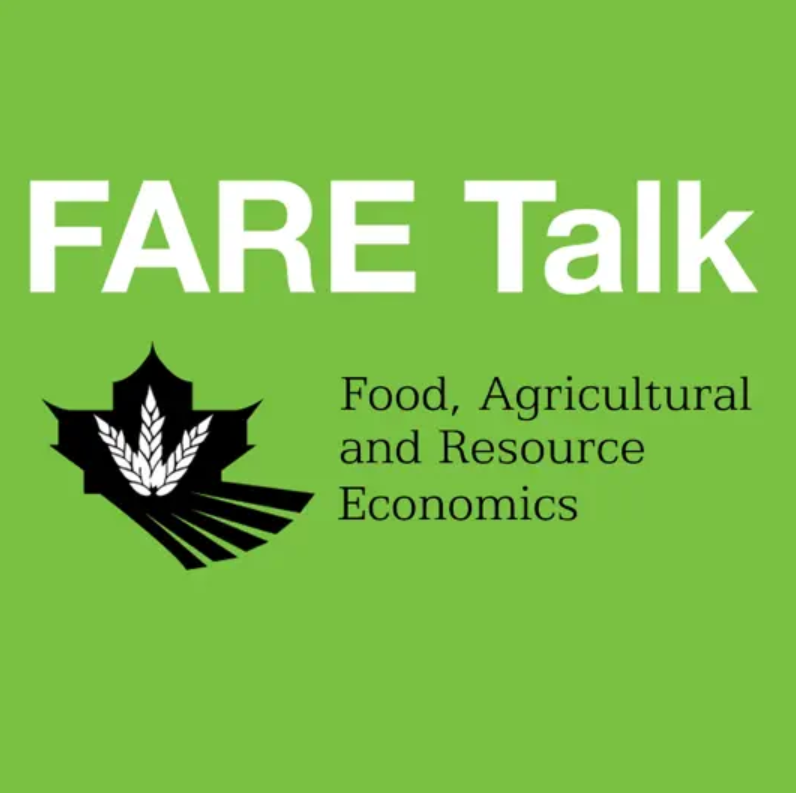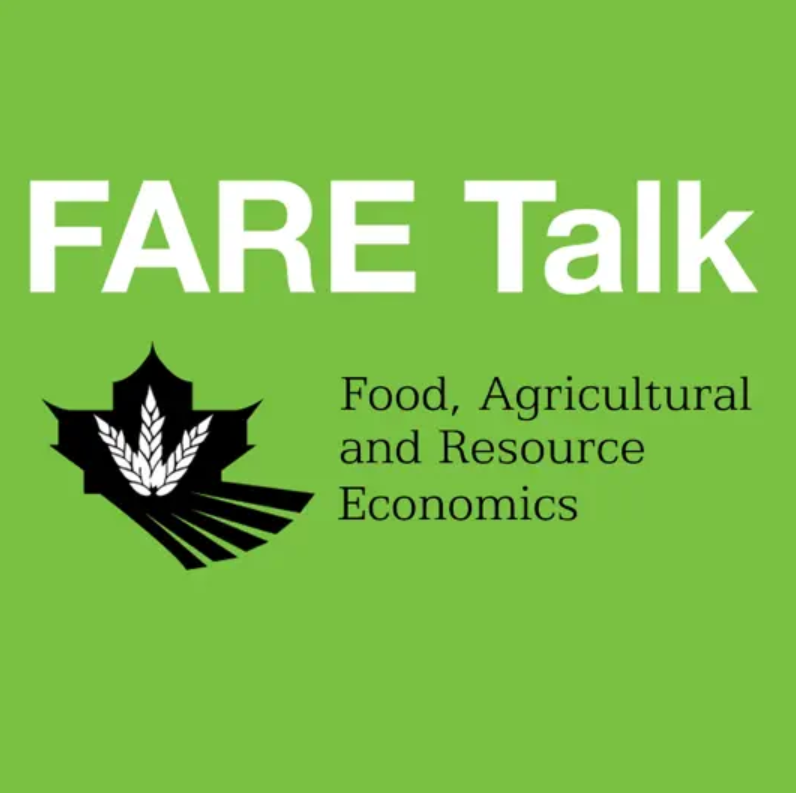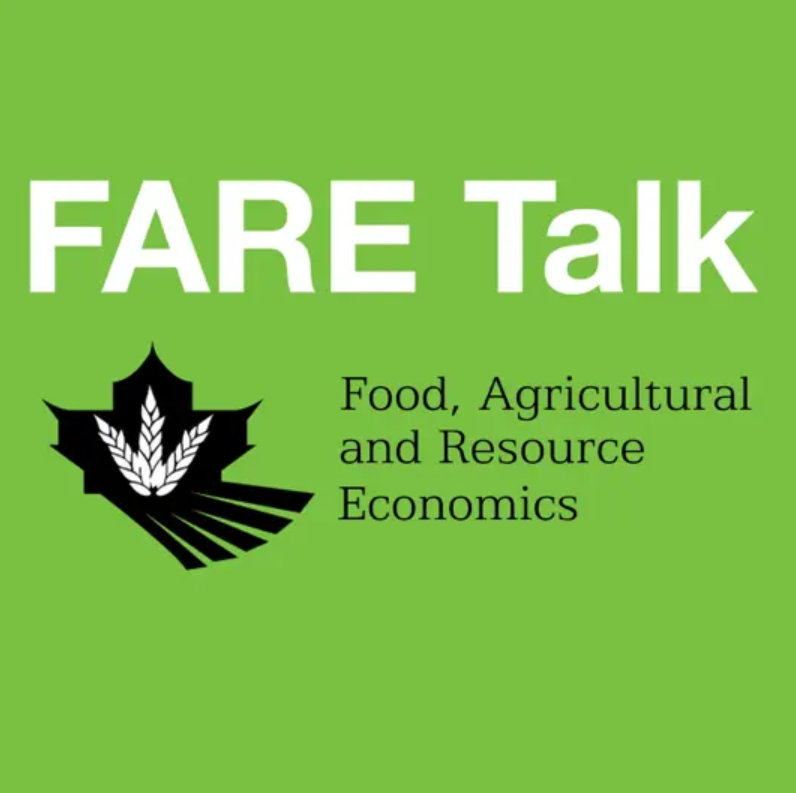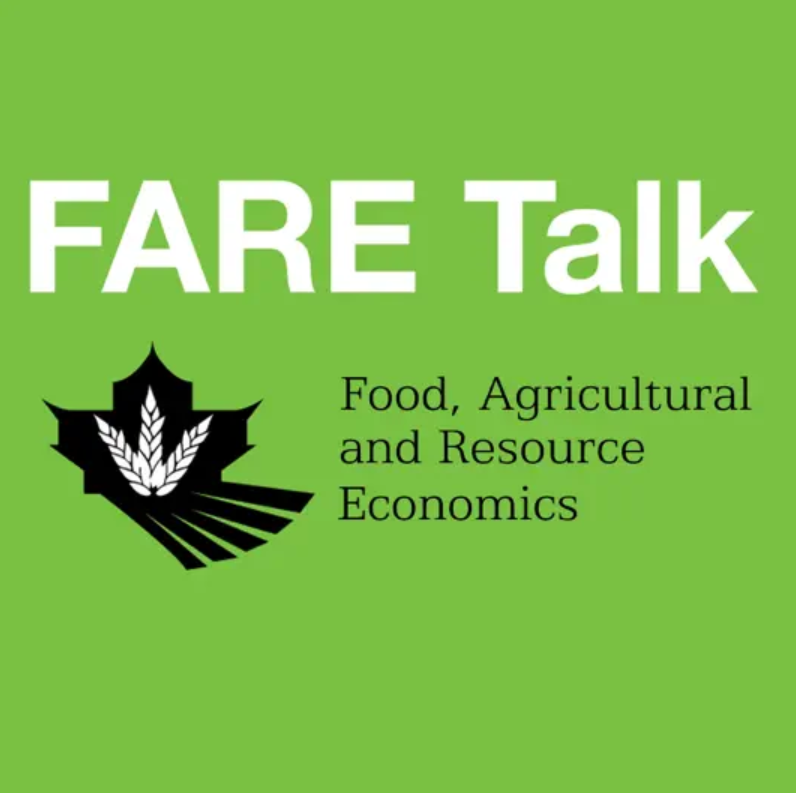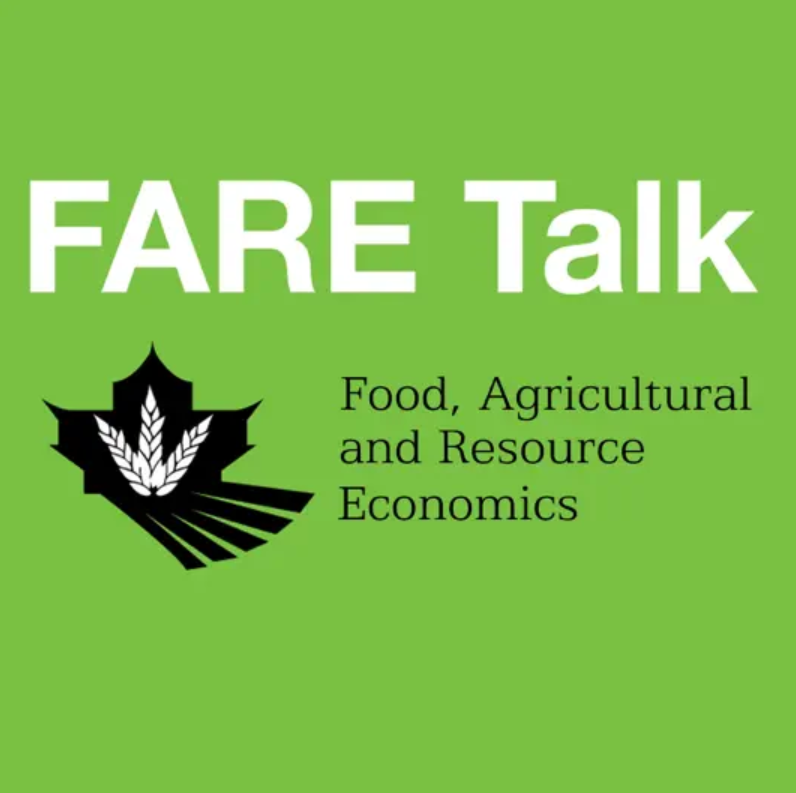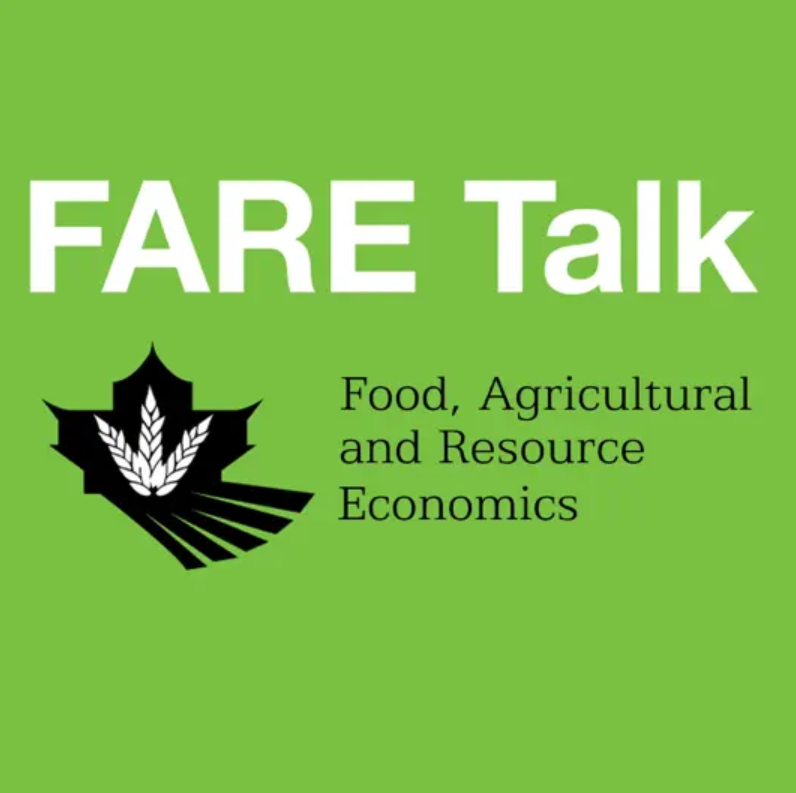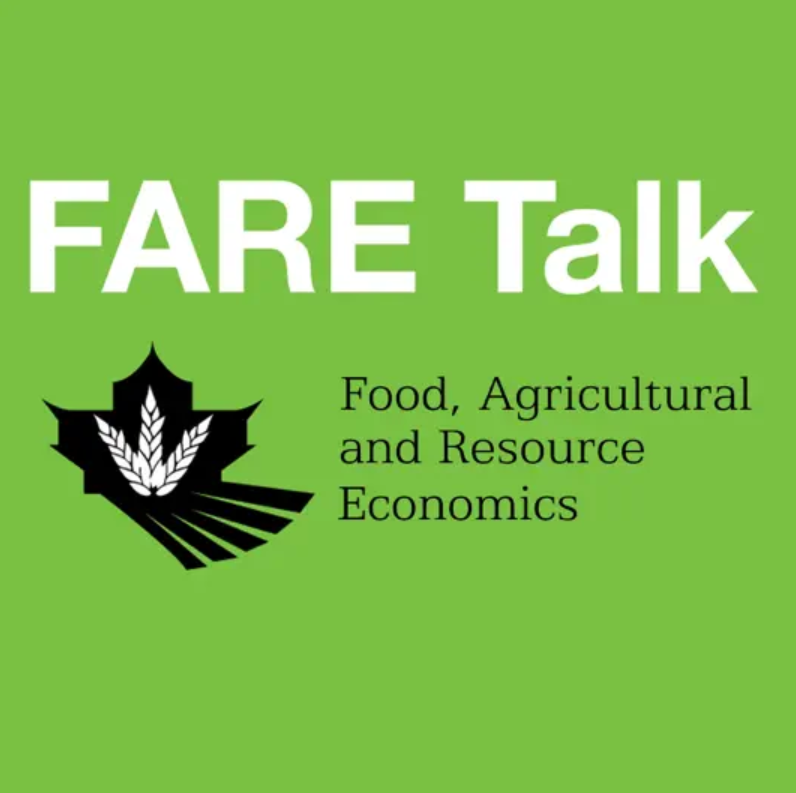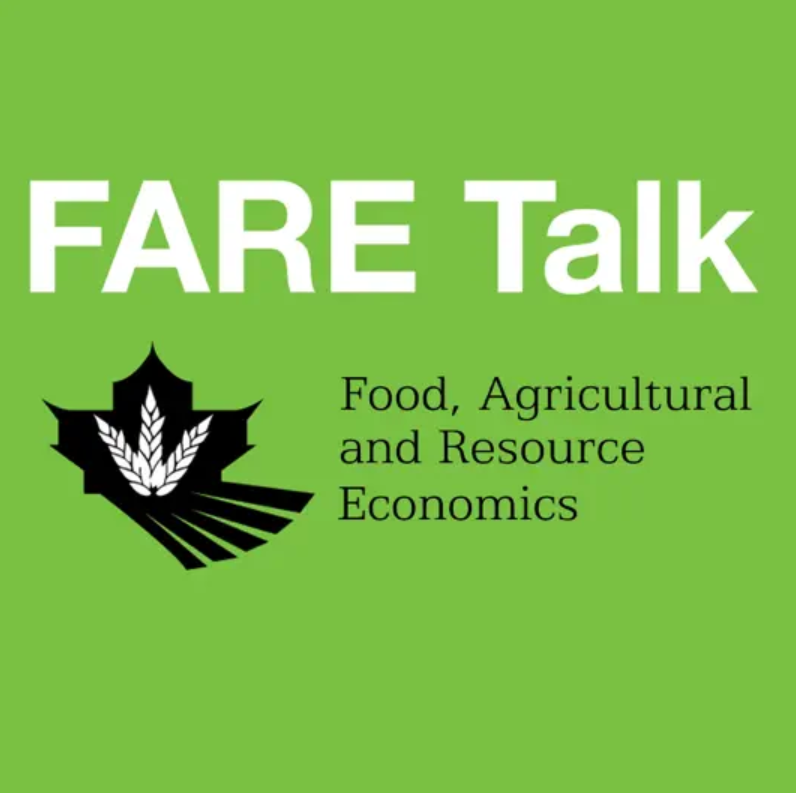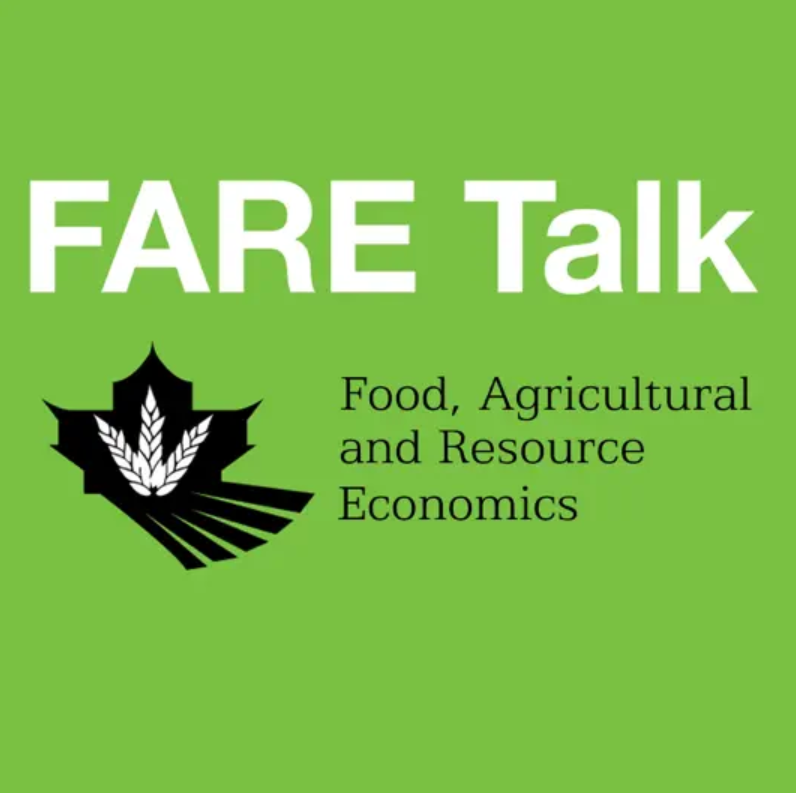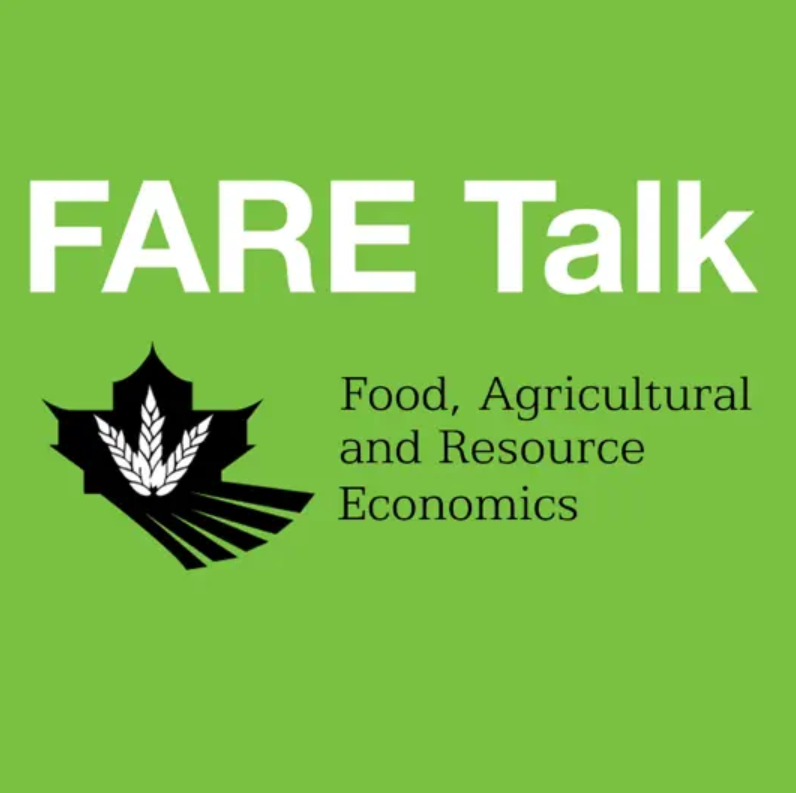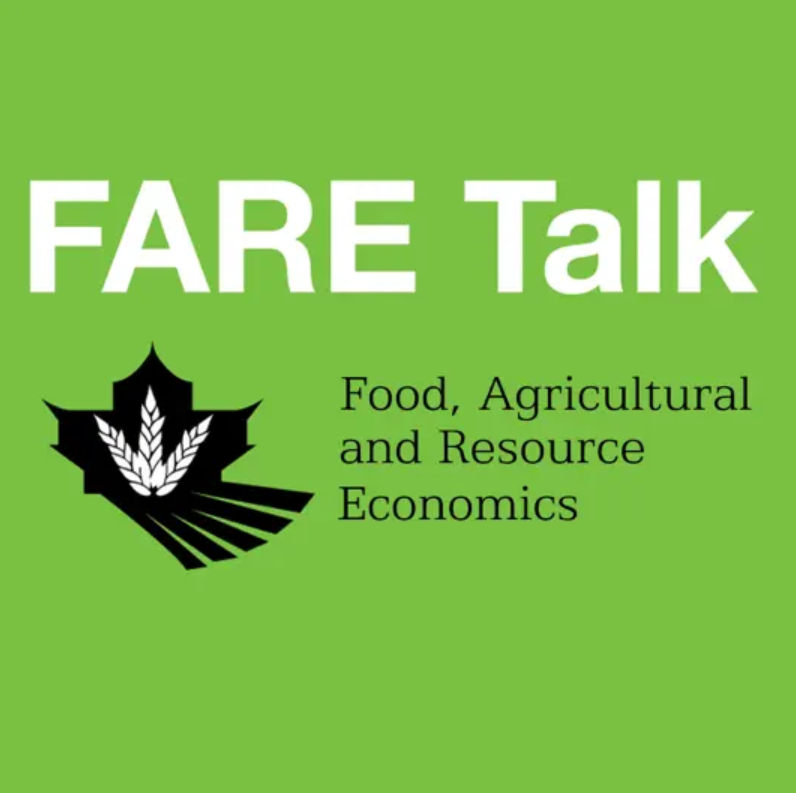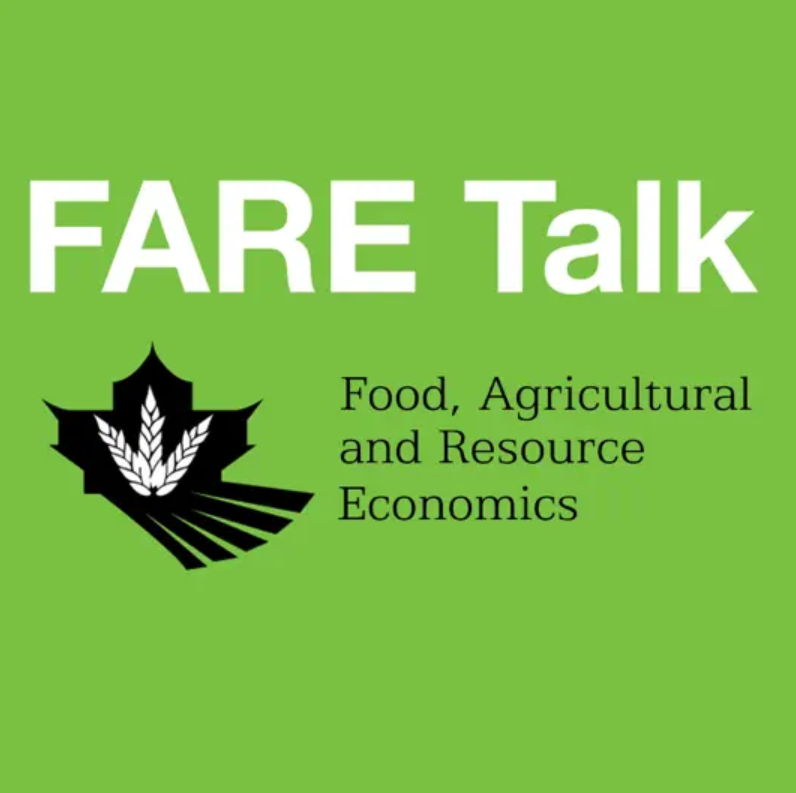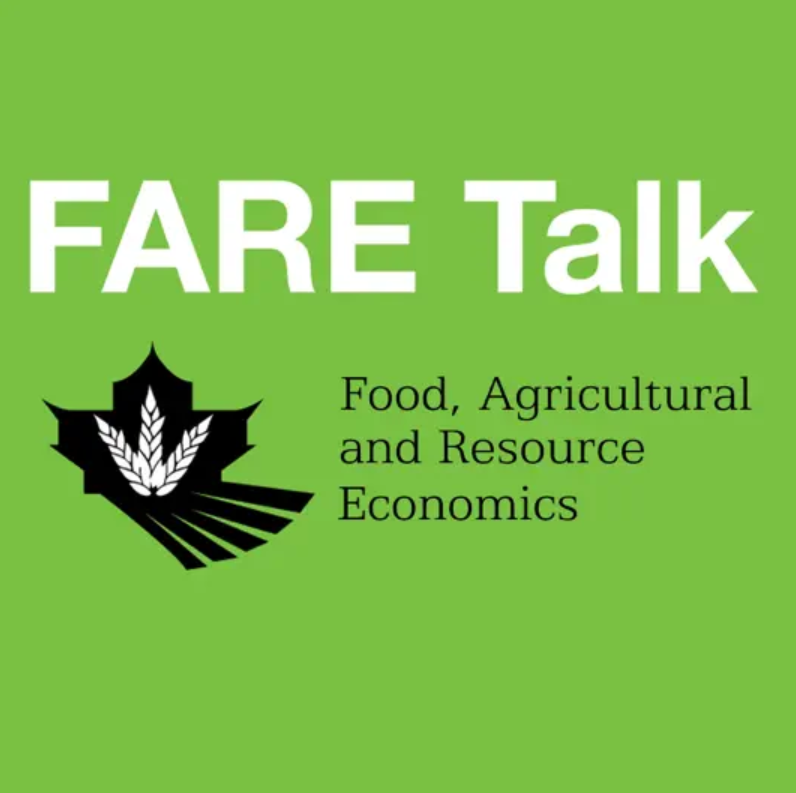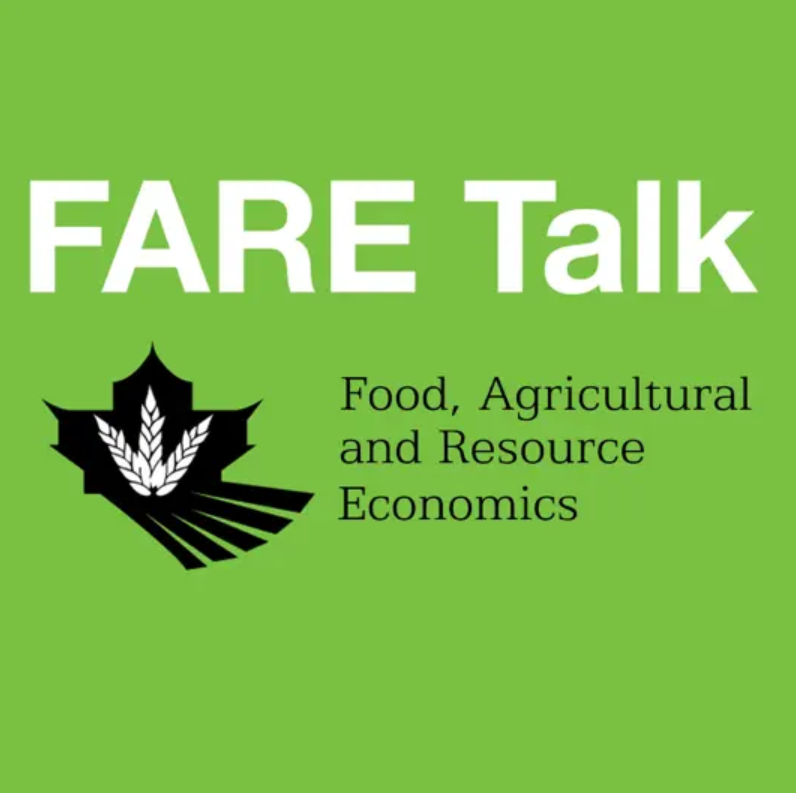Africa, Land and Economic Development - August 28th, 2014
Description
Dr. Thom Jayne and Dr. Brady Deaton have a conversation focused on economic development strategies for Sub-Saharan Africa and contemporary issues regarding land use and land ownership in Africa.
Transcript
[0:04 ] Brady: Welcome to FARE Talk, where we set out to provide enduring discussions on contemporary topics relevant to our economy, with particular emphasis on food, agriculture and the environment. My name is Brady Deaton Jr. of the Department of Food, Agriculture and Resource Economics at the University of Guelph. I'll be your host.
[0:24 ] [Introductory music fades out]
[0:24 ] Brady: Today is August 28th, 2014 and I will be speaking to Dr. Thom Jayne about agriculture, land pressures, and economic development. Dr. Thom Jayne is a widely respected and well-published professor of international development in the Department of Agriculture, Food and Resource Economics at Michigan State University. Thom, welcome to FARE talk.
Thom: Hey Brady, glad to be with you.
[0:45 ] Brady: Thom, you and your colleagues, Derrick Heady and Jordon Chamberlain, recently edited a special issue for the Journal of Food Policy, and the title is Boserup and Beyond: Mounting Land Pressures and Development Strategies in Africa. Generally speaking, what motivated you into this area of research and what in particular is motivating this issue?
Thom: Mhmm. That's, Brady, if I, there's sort of a proximate reason, and um, there is a more long standing set of motivations. So if I will maybe start with the longer one, it kind of goes back to how I got into this business working on Africa and agriculture. I was a peace core volunteer after I got out of graduate, undergraduate school in the early 80's and I had an interest in seeing how two-thirds of the rest of the world lived. So, I got my fill of that for two years in a rural village in Ghana, and I was there to help them with agriculture but it became quickly apparent that they knew so much more about agriculture in the tropics than I did. One of the things that really impressed me from my two years there was how their people working in communities, how their hardest efforts could be undermined by a politician in the capital city just by the stroke of a pen. And that's sort of what made me realize that any attempt to do something useful for, you know, to deal with problems of hunger and poverty in Africa, I felt anyway, that I needed to get back into a, sort of a, position where I could speak to policy makers. And that's how I ended up getting into graduate school. But the observation that I came up with after two years in Ghana was that well, I think our textbooks and conventional wisdom about Africa, rural Africa anyway, is that these communities are fairly egalitarian and that land is relatively plentiful. It's not like Asia where you have these really densely populated areas. What it, even in the 1980's, I could see that there wasn't, that really wasn't true. People were constrained in the amount of land that they had, and it seemed to affect their potential to really expand and grow and so forth. You know, sort of the more proximate reason of that, is that having looked at almost every nationally representative data set in Africa, spanning 10 or 12 countries, now that I have really delved into, in every single one of them, we see this huge heterogeneity in land holding size. So most small holder households in Africa may have a hectare or less, whereas a small proportion of households may have 5 to 10 to 20 hectares. And, almost all of the marketed output will come from that top ten per cent of households, so much so that maybe two-thirds of African households sell almost nothing and many of those households are actually net buyers of food in the sense that they may sell something, but they end up buying back more than they sell. And, all of these indicators of welfare, asset wealth, consumption, incomes and so forth, very much seem to be correlated with variations in farm size. And another one of the kind of paradoxes that got us into this work, Jordan and I have talked about this at length before we actually started setting up the special issue, is that when you fly over Africa, and land in one of these capitals, and you look down and there is so much unoccupied land, it looks like it is so sparse. And yet, again, rural households often tell us in surveys that their limiting factor of production is land, and that they can't seem to expand or get access to more land. So there is this paradox of land scarcity amid the apparent abundance. So those are some of the motivations that we had getting into this special issue. And of course, there has been so much done on this, you know, previously, and we wanted to give a nod to Ester Boserup and the seminal work that she has done, and she kind of hatched a cottage industry of subsequent work on this by some of our luminaries in agricultural economics and the economics field including people like Hans Binswanger, Prabhu Pingali, you know, so many other people have done work on trying to explain how land intensification and you know, changes with population growth.
[6:20 ] Brady: And who was Ester Boseup, why is she in your title?
Thom: Mhmm. Okay, right. So, in 1965, Ester Boserup wrote a piece that took on Thomas Malthus. And you know, Thomas Malthus seems to have a bad name these days because of his, you know, his pessimism about the fact that population growth would outstrip the ability of the world to produce food, and so there would be these dire consequences down the road as the world became, you know, more populated. So what Ester Boserup tried to turn that around and said, well it's true, that as population density rises it's going to increase the demand for food, but she pointed out that communities tend to respond, much like the induced innovation theories of Vern Ruttan and so forth, and Hayami, communities respond to rising population pressure by intensifying on the scarce factor of production. And so as farm sizes shrink because there is subdivision and more allocation of land, and you know, you reach the land frontier. So Ester Boserup was saying that people would apply more fertilizer, they'd put more labour per hectare on the ground, they'd get more weeding done, so there would be certain forms of intensification that would allow food production to keep pace with population growth. So, that's been widely accepted and empirically validated in most areas, but we start to see that at very high levels of population density, that relationship seems to plateau, this relationship between population density and productivity. So, we're noticing that yes Boserup premises seem to hold, up to a certain threshold. And then beyond then, she never really explored whether this could go on at infinitum, could population density just continue to increase, or, you know, would something else have to happen? And actually, she did sort of talk about the need for off-farm employment to sort of kick in and transform these economies from agrarian societies into industrial ones. So I think most of her writing sort of assumes that once population density gets to a certain point, you're going to have people migrating into urban areas to sort of relieve the pressure. But, you know, one of the defining features of Africa, over the past, you know, 20 or 30 years or so, has been that the industrial non-farm growth has been very limited. And so this is you know, probably discouraged people from leaving rural areas and going into urban areas, even though urbanization is proceeding at a very rapid pace, it would probably be much greater if urban areas were experiencing more rapid employment growth in the non-farm sector. So, anyway, what we're finding is that beyond population density, rural population density of about 500-600 persons per square kilometer of arable land, we see that there's signs that intensification does not increase, and in fact, in some areas it declines. This may be related to over mining of soil, degraded soils, we're noticing that in many densely populated areas fallows have basically disappeared. In Malawi for example, southern Malawi, one of the more densely populated areas of Africa, there are no fallows anymore. So farmers are just intensively, year after year after year, cultivating their plots, and they're putting the same crop, they're not even rotating their crops very well because they have such small farm sizes and they need to grow their staple crop, which is maize in that area, to feed themselves. They end up, year after year, putting maize on that one hectare of land, so there is something like a social trap going on where in the short run, households are doing what's in their best interests, which is, you know, growing as much food as possible on their small plots, but the long run consequences of this are declining systemic productivity, you know, of the whole system which certainly, you know, does not bode well for kind of, future scenarios, unless there's major growth in the non-farm sector. You know, which, you know, there is some signs in recent years, that this, you know, could be picking up. But these are the scenarios that we are trying to address and deal with in this special issue.
[11:52 ] Brady: One of the, one of the really interesting things that you mentioned that I wouldn't mind expanding on a little bit is the, that you have this concern about population densities, and in many other countries, despite the general availability of land throughout Sub-Saharan Africa, for most of the countries, and in particularly in some of the regions within those countries, population is very dense, and so you are really, the land constraint, or the problems associated with the land constraint that you mentioned, are prono

